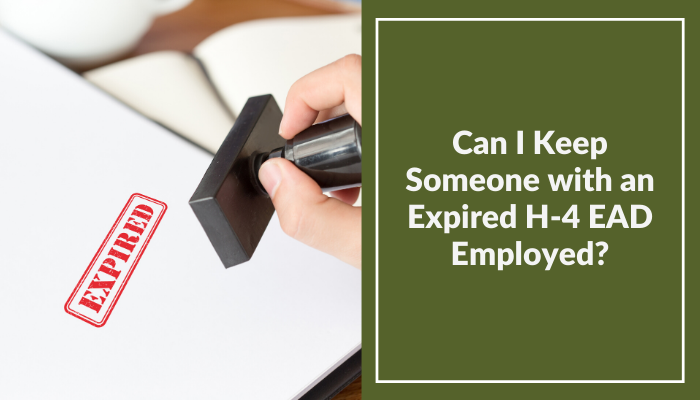Considering the delays, challenges, and exemptions with work authorization extensions of Employment Authorization Documents (EADs), employers are asking if they can keep certain workers employed with an expired EAD.
If the person’s EAD has expired and they do not yet have the new EAD or another valid, acceptable document to present for verification, they may not be able to continue working. However, there are some exceptions.
All U.S. workers must present acceptable documents to prove their work authorization as part of the I-9 process. One of those acceptable documents is the Employment Authorization Document (EAD).
Certain EAD applicants are eligible for automatic 180-day EAD extensions. DHS will automatically extend EADs (Form I-766) for employees with certain EAD category codes who timely file to renew their EAD.
Here is what you should know.
What should the employer check first?
- The category code on the EAD must fall under one of the eligible categories: A03, A05, A07, A08, A10, C08, C09, C10, C16, C20, C22, C24, C31, and A12 or C19.
- The EAD must be properly filed, meaning that the “received date” on the Form 1-797C from the extension filing must be on or before the “card expires” date listed on the EAD.
- The category code on the EAD must match the category code on the Form I-797C. (A12 and C19 should be considered the same code.)
Be aware that some category codes on the EAD may include the letter “P” (e.g., “C09P”). If that’s the case, disregard the letter “P” when comparing the category code to the receipt notice. That means “C09P” and “CO9” should be considered a match.
Which categories are not eligible for the 180-day automatic extension?
Certain EAD categories associated with spouses of nonimmigrant workers, such as H-4s and L-1s, are not eligible for the 180-day automatic extension. These categories include A.17, A.18 and C.26. These applicants cannot work until they receive the new valid EAD card.
